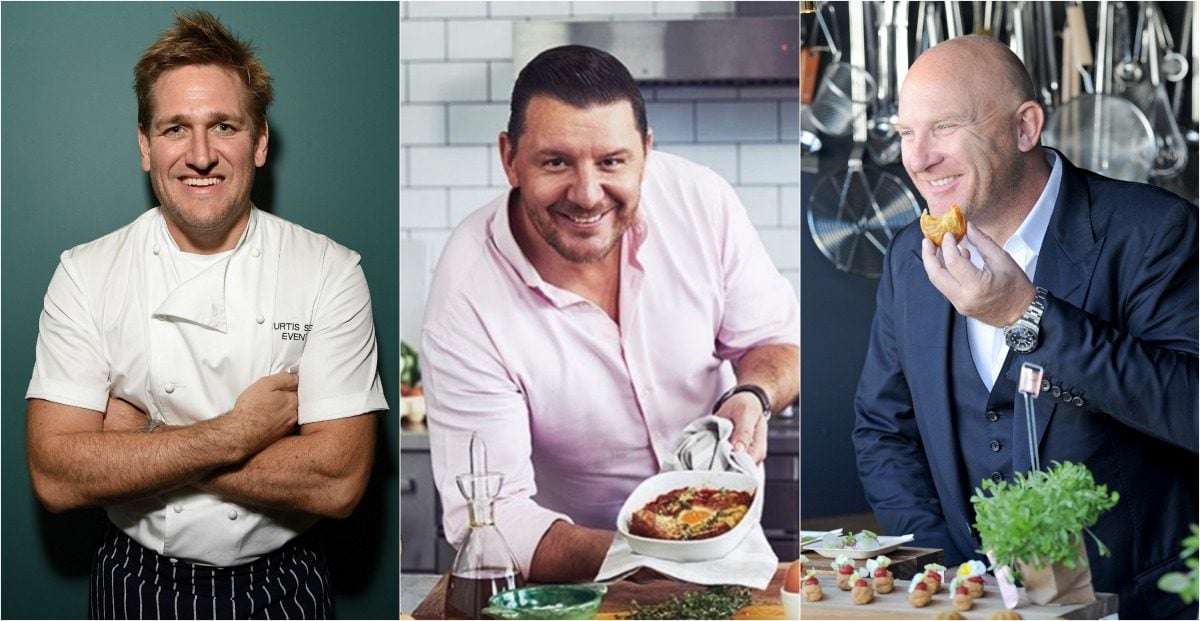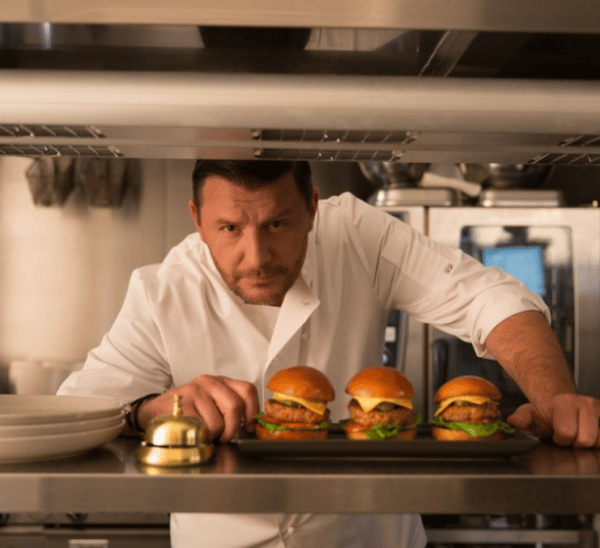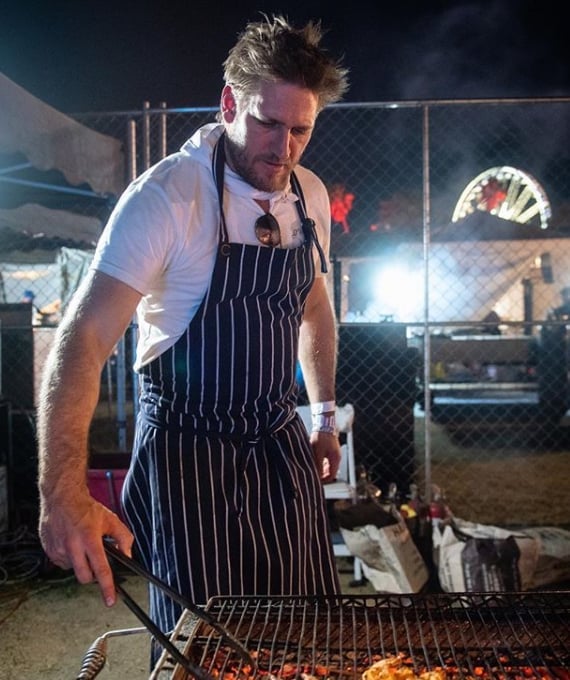
“How long have you got?”
My Kitchen Rules‘ Manu Feildel has just been asked how hard it is to be a chef, and if there are any common mental health struggles in his industry.
In the wake of the death by suicide of renowned Australian chef Justin Bull, a conversation has resurfaced about what it truly is like to be a chef in this country.
Eight Australians die by their own hand every day, and 20 per cent of suicides are linked to work.
Over the past two years, suicide rates in the global hospitality industry have risen, and 80 per cent of hospitality workers agree mental health issues are a challenge in the industry.
In 2018, prominent celebrity chef and American TV host Anthony Bourdain died by suicide.
In 2017, respected Sydney chef Jeremy Strode took his own life, as did Darren Simpson a month prior.
And they’re just the chefs with high-enough profiles for us to hear the news.
Samuel Johnson has spoken to Mamamia about why he doesn’t like mental health labels. Post continues after video.
Manu is not in the least bit surprised by the struggles being felt by his colleagues, but luckily he knew from the start what he was getting himself in for.



Top Comments
At the end of the day, working in hospitality as a long term career is not valued in Australia, compared to other countries, like say France. People can be career wait staff, chefs etc without being looked down upon. There is a certain amount of snobbery towards hospitality or parts of retail as viable long-term job options here. This is a real shame, compounded by the conditions employees have to work under.
I worked in kitchens for many years (and started my apprenticeship before having to stop due to health issues) and it's hardly been kept secret. Anyone who works in hospitality knows it's ironically, a very unhospitable industry to work in.